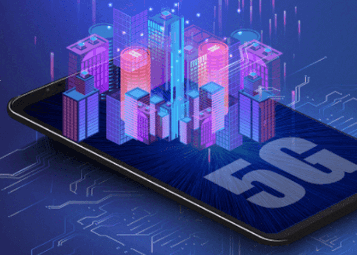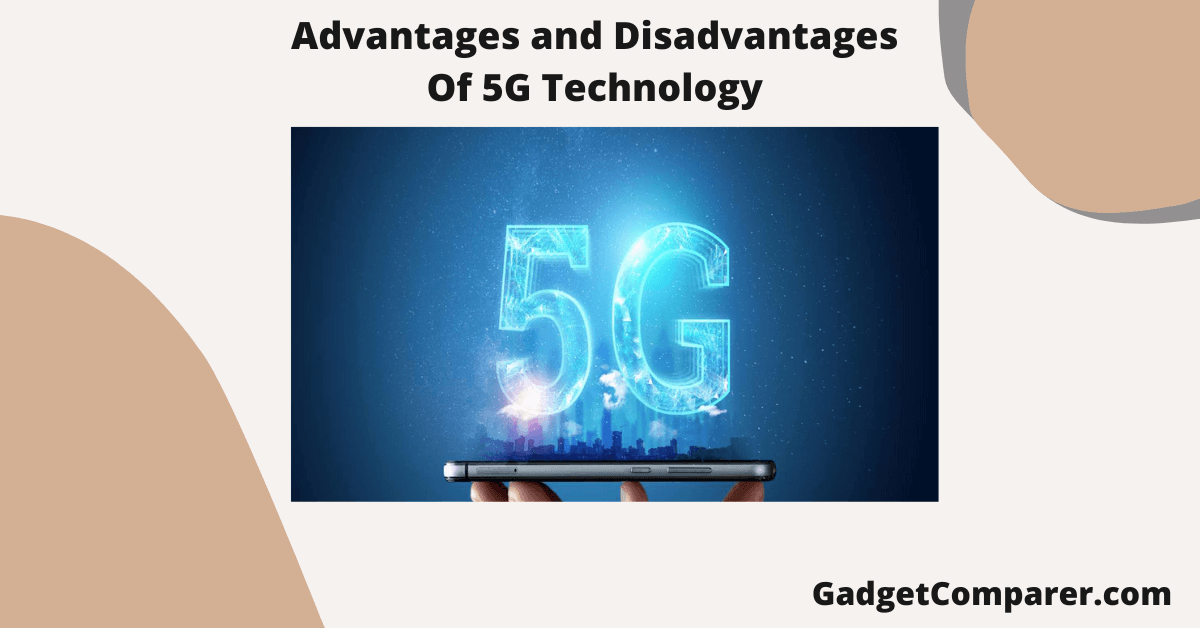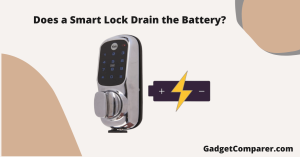5G stands for 5th generation, the next generation of wireless connectivity that will eventually replace 4G. 5G technology is expected to provide a wide range of benefits to end users, paving the way for new, potentially unmatched technologies. This article provides information on the advantages and disadvantages of 5G networks to learn more about 5G technology.
Advantages and Disadvantages of 5G network
As soon as 5G hit the market, smartphone companies started rolling out devices upgraded to 5G standards. As the advantages and disadvantages of 5G networks become more and more controversial, lightning-fast technology is drawing the market’s attention.

It may still be some time before 5G reaches everyone. It is essential to start learning about this technique. Considering the uses of 5G networks, it is worth paying attention to shortcomings, advantages, and disadvantages.
How do 5G sed, combining wireless technologies such as GSM, WiFi, LTE, VoLTE, etc., incorporate new radio access technologies?
Millimeter wave: Communication through the handset is usually done over radio frequencies below 6 GHz. But as more and more devices come online, traffic eventually slows down, and more and more disconnects.
To curb this problem, this frequency is now iThisas spectrum grows, 5G will enable a new to curb this problem kind of network built to seamlessly connect almost everyone and everything, including machines, things, and devices.
This technology is designed with expanded capacity to enable the next generation of user experiences and deliver better mobile services.
What are the advantages of 5G networks?
Better speed sums up everything in the first place. Fewer disconnects, smooth transmission, and reliable connections are possible benefits of 5G networks. Some of the key benefits of 5G networks are detailed below.
1. Enhanced Bandwidth
The better bandwidth of the 5G network allows users to use voice and data services seamlessly. Users have more space to stream and download data without hassle as bandwidth increases.
2. Reduce tower obstruction
Tower obstacles are currently the most common problem with 4G LTE technology. Many users must rely on tower signals that tend to be disturbed and affect their influence capacity.
However, with 5G networks, this is no longer a problem as there are no tower collisions. In other words, 5G networks provide more bandwidth capacity as users can access internet-based services without obstacles. Tower obstacles are currently the most common problem with 4G LTE technology.
Many users must rely on tower signals that tend to be disturbed and affect their influence capacity. However, with 5G networks, this is no longer a problem as there are no tower collisions. In other words, 5G networks provide more bandwidth capacity as users can access internet-based services without obstacles.
3. Tremendous speed
Perfect transfer speed is perhaps one of the Ones installing a 5G tower around it. You can transfer momentum, access internet services faster, and download HD programs in minutes.
People have to grapple with 3G and 4G speeds. 5G bandwidth has minor network congestion, so it’s faster, making high-definition content much easier to access.
4. Technology Advancement
When you think strongly, more robust possibilities lead to more prominent inventions. The Internet of Things (IoT) will be at your fingertips, from health to finance.
More technological advances will open the door to the invention of more intelligent devices based on VR and artificial intelligence that were previously unavailable.
5. Connect PC and Handset
Advanced 5G networks are much better than dedicated Internet access points, and users can save money at an additional fee.
Users can use their mobile phones as an internet access point and use 5G bandwidth for multiple devices simultaneously. With minimal transmission-related disruptions, 5G networks are seamless and effective for various devices in your home or office.
What are the disadvantages of 5G networks?
Taking two steps ahead is taking the world a step back differently. These shortcomings of 5G networks will likely affect consumers in the future.
1. Healthcare
There is a lot of debate about the health risk claims posed by 5G’s higher radio frequency (RF). Network operators continue to spray the bright side of 5G networks.
However, a recent National Toxicology Program study found that high levels of cell phone radiation in male rats increased carcinogenic activity by 6%. However, the radiation emitted by the network is not part of the study.
2. Additional cost
Think about the cost of building new 5G network equipment, improving infrastructure, and maintaining telecommunications companies. All these costs eventually add up to consumer costs. Better service means users must spend much more to use advanced 5G technology.
3. Battery drain and device overheating
Disadvantages of 5G networks include draining the user’s mobile battery. Mobile phone manufacturers must find good battery technology to cope with the drainage problems caused by high-frequency consumption.
Your phone is looking for a new access point, or your device network antenna drains more battery than usual. So, the reduced 5G network coverage will eventually drain your mobile battery. Users are also expected to face device overheating issues after running their phones on 5G connections during overtime.
4. Broadcast distance
It is assumed that 5G networks will only be effective in densely populated areas. Another disadvantage of 5G networks is that frequencies can only transmit over short distances.
WiFi, for example, doesn’t travel as far as 2.4 GHz WiFi, and 5G cellular cannot travel as far from towers. Also, millimeter 5G radio waves are transmitted only linearly with the ability to see the building.
This ultimately boils down to more buildings, trees, walls, and other obstacles blocking or interfering with high-frequency signals. Abnormal weather conditions are another nightmare for 5G technology.
5. Upload speed consumes more data
While a user is searching for something on the Internet, data is transmitted through dual channels. Current technology offers upload speeds up to 100 Mbps and download speeds as high as 1.9 Gbps.
Given that 5G network speeds are exploding and costing more than ever, even small internet transactions will likely result in more data transfers.
6. Coverage issues in rural areas
Currently, 5G networks are a dream come true for urban areas. Speculation suggests that carriers deploy 5G towers in densely populated areas to provide robust data and voice services.
In contrast, people living in rural areas will not benefit from 5G networks. Many remote locations currently do not have access to any form of cellular connection.
Conclusion
Ultimately, 5G networks have pros and cons for users and carriers. Rural residents and city dwellers will be concerned about cost and availability. Meanwhile, tech companies are working to overcome the anticipated shortcomings of 5G networks. Hopefully, there will be a way out of that too.
Frequently Asked Questions
What are the main advantages of 5G compared to 4G?
Overall, 5G has several advantages over 4G due to the new technologies, spectrums, and frequencies it uses: more speed, less latency, more capacity for connected devices, less interference, and better efficiency.
How will 5G change the world?
5G could enable bandwidth-intensive processes such as augmented reality (AR), virtual reality (VR), and real-time data transmission and analytics on a larger scale. This can affect all areas of the business.
Is 5G important for the future?
Overall, 5G technology has the potential to improve many aspects of business operations and can help businesses remain competitive in the digital economy. It is also expected to improve many aspects of our lives and society, but the full impact is yet to be seen.
Is 5G better than average?
5G can be significantly faster than 4G and 3G and deliver speeds as fast as WiFi. With incredible speeds of up to 20 Gbps, you can download 8K movies in seconds, experience technologies like VR, AR, and autonomous driving, and connect more devices than ever.
Is 5G faster than WiFi?
5G testing Opensignal found that 5G mmWave is the fastest WiFi and bi-directional, but home/office WiFi is shorter than 5G at sub-6 GHz bi-directional. Even 4G LTE downloads are more immediate than public WiFi, and public and home/office WiFi uploads are faster than LTE.
Will 5G Use More Battery?
If your phone has trouble finding a solid signal on any network, it will use more battery. This is much more likely with the current minimum range of 5G. The bottom line is that using 5G under appropriate circumstances can drain more battery power than 4G.
Is 5G harmful to your privacy?
Some people worry that 5G networks will have adverse health effects, such as increased levels of radiation that can make us sick. However, there is no concrete evidence to support these fears.
How will 5G affect my phone?
When you upgrade to NGMT, you can expect a dramatic improvement in network reception and internet speed. This is especially noticeable when using multiplayer games, live video calls, and other bandwidth-intensive applications.
Can a 5G phone spy on you?
The security benefits missed by non-standalone 5G networks extend beyond the stingray. They can be vulnerable to tracking, eavesdropping, and so-called downgrade attacks that can push devices into older and more vulnerable data networks.




